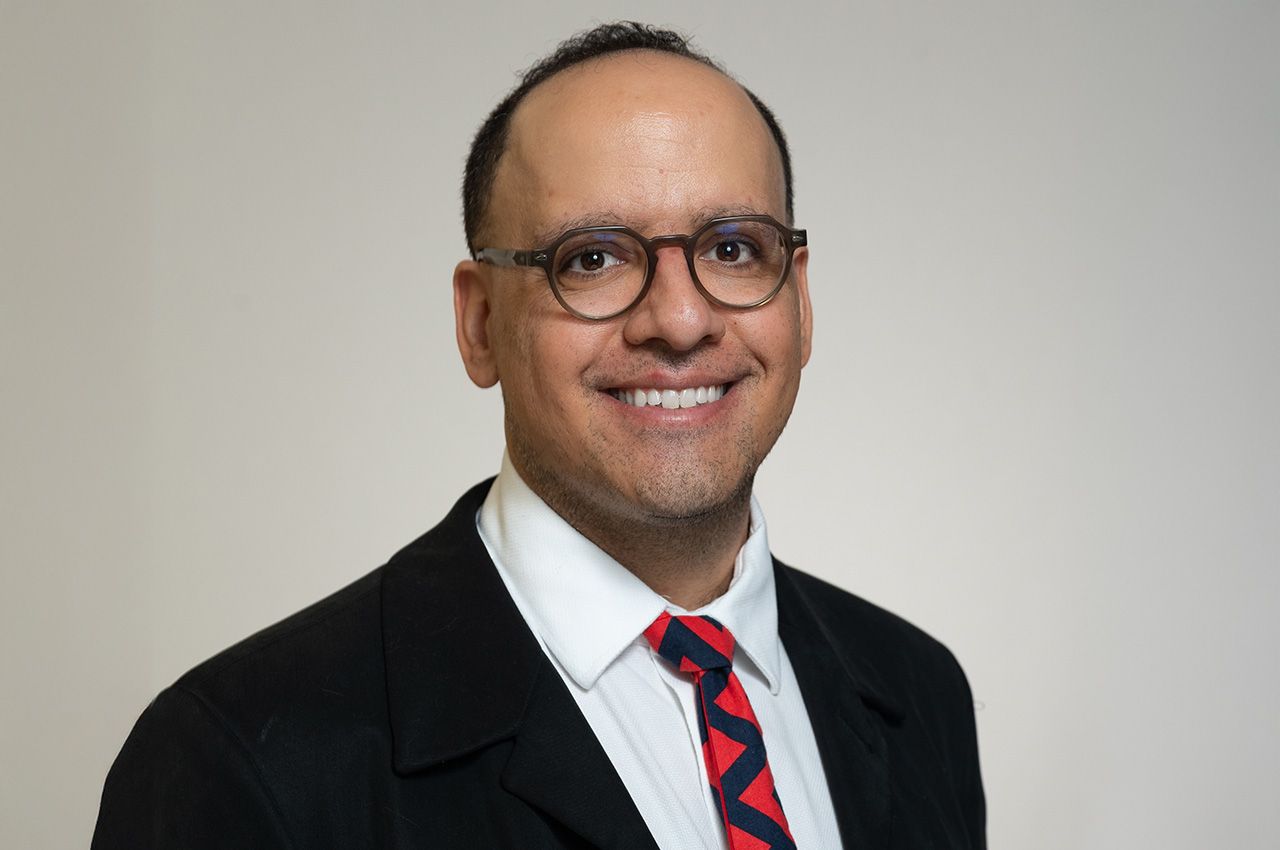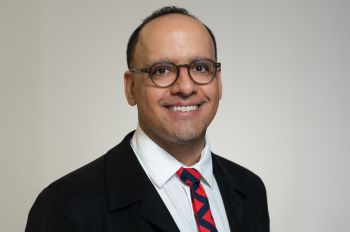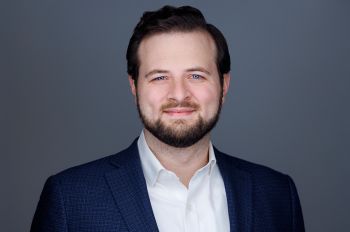One Case at a Time: Immigration Attorney Joins Chicago-Kent Faculty

Amidst all the noise around immigration, Chicago-Kent College of Law Assistant Professor Pedro Gerson keeps sane by focusing on the Jewish concept of tikkun olam, or healing the world.
“One rabbi spoke about how every person is a world unto themselves,” says Gerson. “If you help one person, you are saving a world, if not the world. If you’re doing public interest work and you’re thinking you’re going to change the world, that’s a recipe for burnout in six months.”
Gerson, instead, focuses on individual clients. He does so by doing things such as hosting free legal consultations on immigration issues.
“I will always end up taking on a client, even though I try not to, but someone will have something relatively simple, and so I just end up doing it,” he says.
Gerson knows the strain of moving across borders.
He grew up in Mexico City, and he didn’t spend any significant amount of time in the United States until he went to college. He returned to Mexico after earning his degree, where he was a project manager and attorney for Instituto Mexicano para la Competitividad. There, he researched police practices and helped draft anti-corruption laws. Gerson also taught at Universidad Iberoamericana and Instituto Tecnológico Autónomo de México.
However, the vitriolic political rhetoric around immigration in the U.S. during the Trump administration made Gerson rethink how he was using his law degree.
“The situation of migrants hasn’t always been great in this country. The more I work in it, the more I realize that. But at that time, I thought, ‘I have this law degree, I have to use it.’”
Gerson moved to the Bronx borough of New York City to take a job as a public defender. He worked in immigration defense at the Bronx Defenders before shifting into academia with a position running the Immigration Law Clinic at Louisiana State University’s Paul M. Herbert Law Center in Baton Rouge, Louisiana.
“The clinic did everything. We did asylum work. We did affirmative applications for naturalization, for permanent residency, etc.,” he says. “We pivoted the clinic to do a lot of representation of immigration detainees because Louisiana is the state with the second-most immigration detainees.”
Gerson then spent two years at California Western School of Law before joining the faculty at the University of Chicago, where he helped establish the clinical practice at the Pozen Center for Human Rights.
Ultimately, Gerson’s love was in teaching, and Chicago-Kent offered the perfect environment, one full of active, engaged, and passionate students.
“I’ve been really impressed with the students I’m teaching in the nighttime program,” says Gerson, who joined Chicago-Kent in fall 2024. “They all have full-time jobs, and they’re doing a couple courses at law school, and I’m not making it any easier.”
“This is not a school where students are coming because their parents are going pay for it anyway,” he continues. “It’s more like students who are betting on themselves, and I take that responsibility seriously.”
Outside the classroom, Gerson focuses his research on the intersection of criminal law and immigration.
“I’m interested in the way we think about punishment, what punishment is, and what we’re punishing for,” he says, giving the example of smuggling: “If what we are doing is protecting migrants from predatory behavior, which it does occur in the process of smuggling, we should target the predatory behavior, not the smuggling, if they are being abused. I’m trying to refocus our criminal law, and also move away from a social harm perspective from immigration enforcement.”
Gerson says that much of the U.S.’s immigration policy was written in the wake of World War I and World War II, when the world was very different than it is today.
Gerson says there are a lot of obstacles getting in the way of an update, and many of those, he says, relate to the inaccurate perceptions of migrants.
“People assume that migrants want to come,” says Gerson. “Migrants don’t want to come. People don’t want to go anywhere. They want to be next to their families, close to their parents, close to their kids. The reality is that people don’t want to migrate.
“The dehumanization happens in the politicization, the way that we speak about people. They’re just individuals, and I think to feel that they are any different than us is what drives me nuts.”



